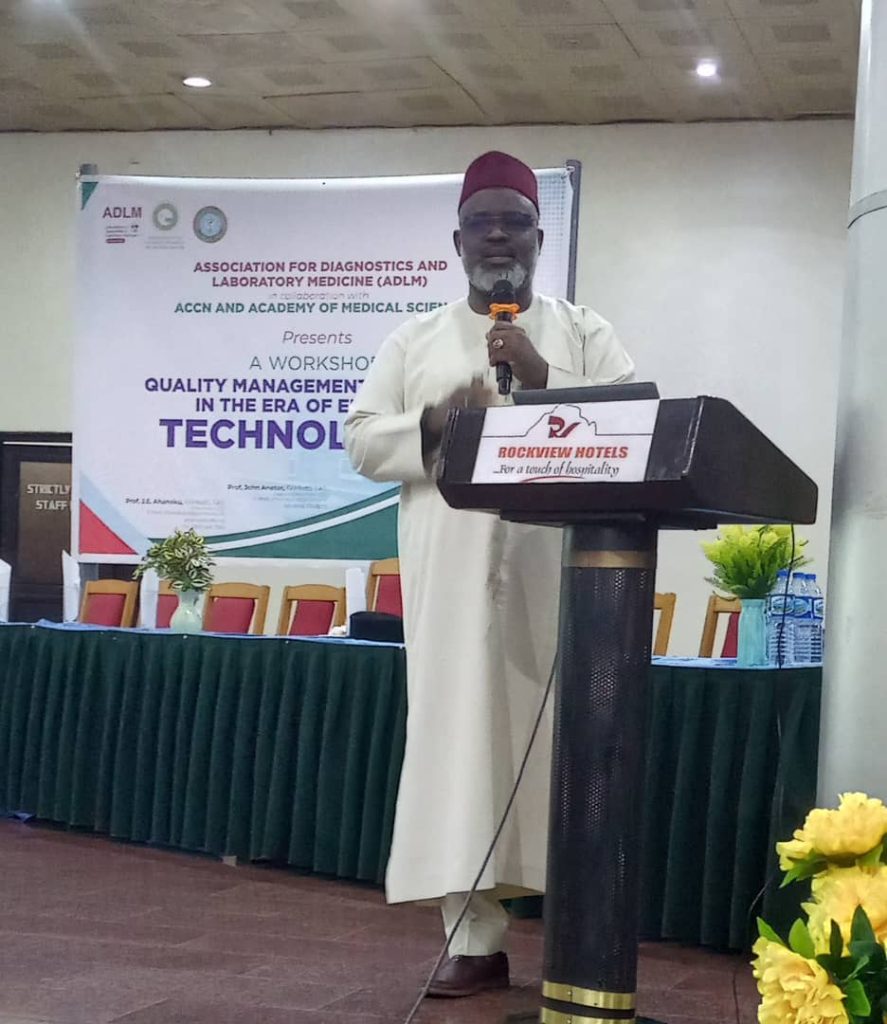NBSA DG warns of critical blood shortage, unveils reforms at National Quality Management Workshop
November 14, 2025 Emporium Reporters
The Director-General of the National Blood Service Agency (NBSA), Professor Saleh Yuguda, has raised alarm over Nigeria’s persistent shortage of safe blood supply, describing it as a major barrier to quality healthcare delivery and a contributor to high maternal mortality rates.
Speaking at a workshop on Quality Management Strategies in the Era of Emerging Technology jointly organised by the Association for Diagnostic and Laboratory Medicine (ADLM), ACCN and the Academy of Medical Science, the NBSA boss said Nigeria currently collected less than 30 percent of its national blood requirement. The event, held on Thursday at Rockview Hotel, Abuja, convened key health professionals, policymakers and laboratory scientists to explore how technology can strengthen healthcare systems.
In his presentation titled Blood Banking Practices in Nigeria, Professor Yuguda stressed that the country’s blood supply crisis remains severe when compared to global standards. “Nigeria faces a severe shortage of blood compared to other developed nations. Most of our health indices, including maternal mortality, are adversely affected by this shortage. The demand for blood is consistently high, yet the supply remains dangerously low,” he said.
He commended ongoing reforms in the health sector under the Coordinating Minister of Health and Social Welfare, noting that the National Health Sector Reform Investment Initiative (NHSRII) was introduced to close structural gaps and improve outcomes, particularly through the free emergency obstetric care programme for Nigerians. According to him, adequate blood supply is central to the success of such interventions.
“This is why the National Blood Service Agency was established—to regulate, coordinate and license all blood establishments across the country,” he added.
Professor Yuguda highlighted persistent challenges hampering the blood service system, including limited human resources, weak governance structures and inadequate infrastructure. He disclosed that the agency is working to boost voluntary blood donation by 40 percent over the next five years and ensure that every local government area has a blood donation centre, while each state hosts a functional blood screening hub.
Although the agency currently operates in only 17 states, he said the NBSA plan to achieve nationwide coverage within five years. Some of the recent gains, he noted, include the reopening of previously closed centres in Enugu, Cross River and Yobe States, as well as strengthened regulatory frameworks.
“We have signed Memoranda of Understanding with several NGOs and faith-based organisations to improve access to voluntary blood donation nationwide,” he stated.
The DG also listed digitalisation as a major milestone, announcing the piloting of the Blood Integrated Management System (BIMS), an end-to-end software for tracking blood donations from donor to recipient.
To tackle human resource shortages, over 200 healthcare workers from 51 public and private hospitals have been trained in modern transfusion practices. The NBSA is partnering with Aminu Kano Teaching Hospital and Germany’s University of Greifswald Institute of Transfusion Medicine to establish a training centre for blood transfusion medicine and auditing.
He further revealed plans to collaborate with academic and research institutions on establishing a blood component processing facility in Nigeria, which he said would significantly improve efficiency and product availability.
“The policy framework is in place. If implementation continues with commitment and coordination, Nigeria’s blood banking practice will be transformed—and with it, the country’s ability to reduce avoidable deaths and save more lives,” he said.
The workshop reinforced the growing consensus that quality management and emerging technologies are indispensable to building a resilient health system capable of meeting Nigeria’s rising healthcare demands.


